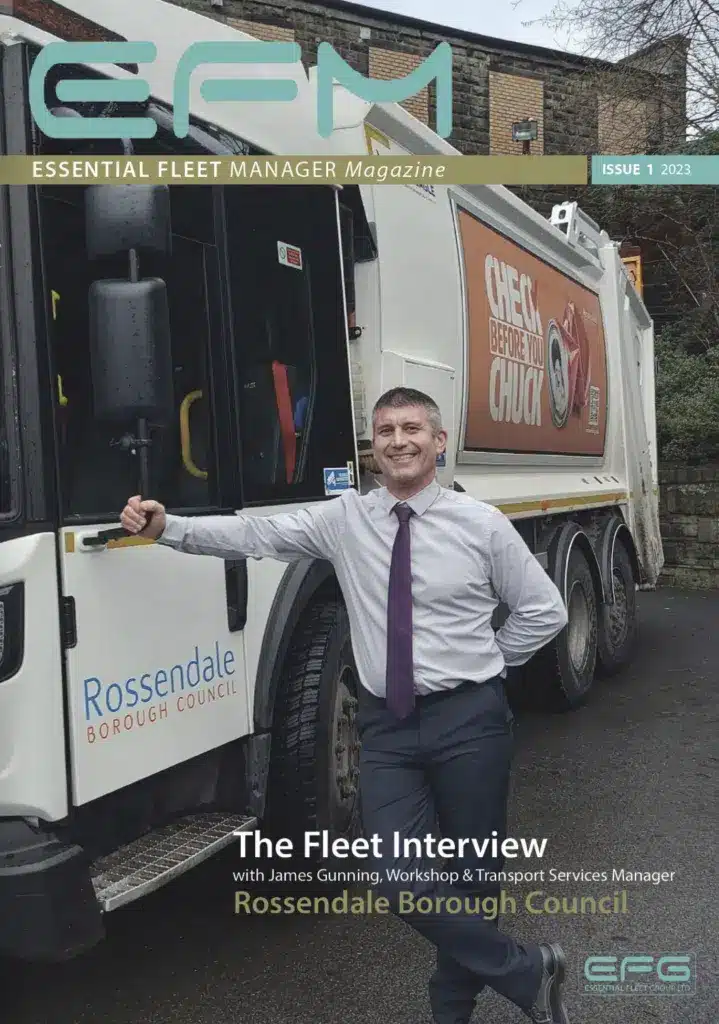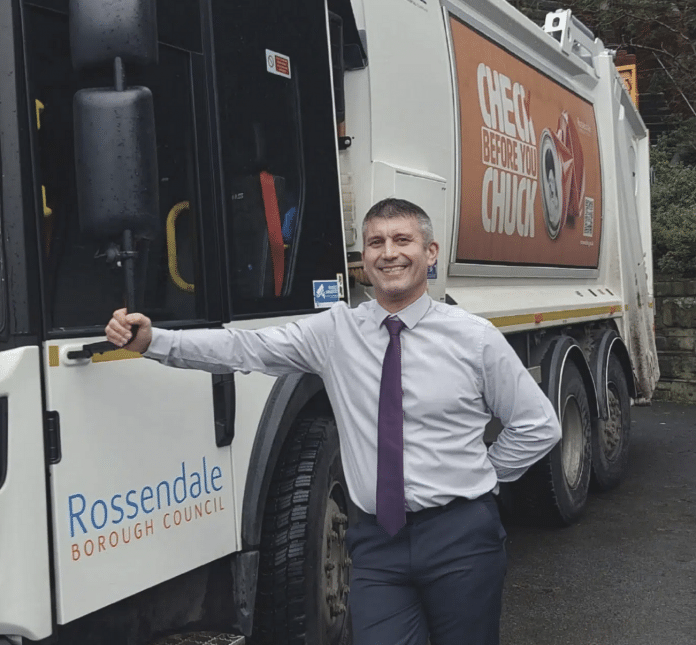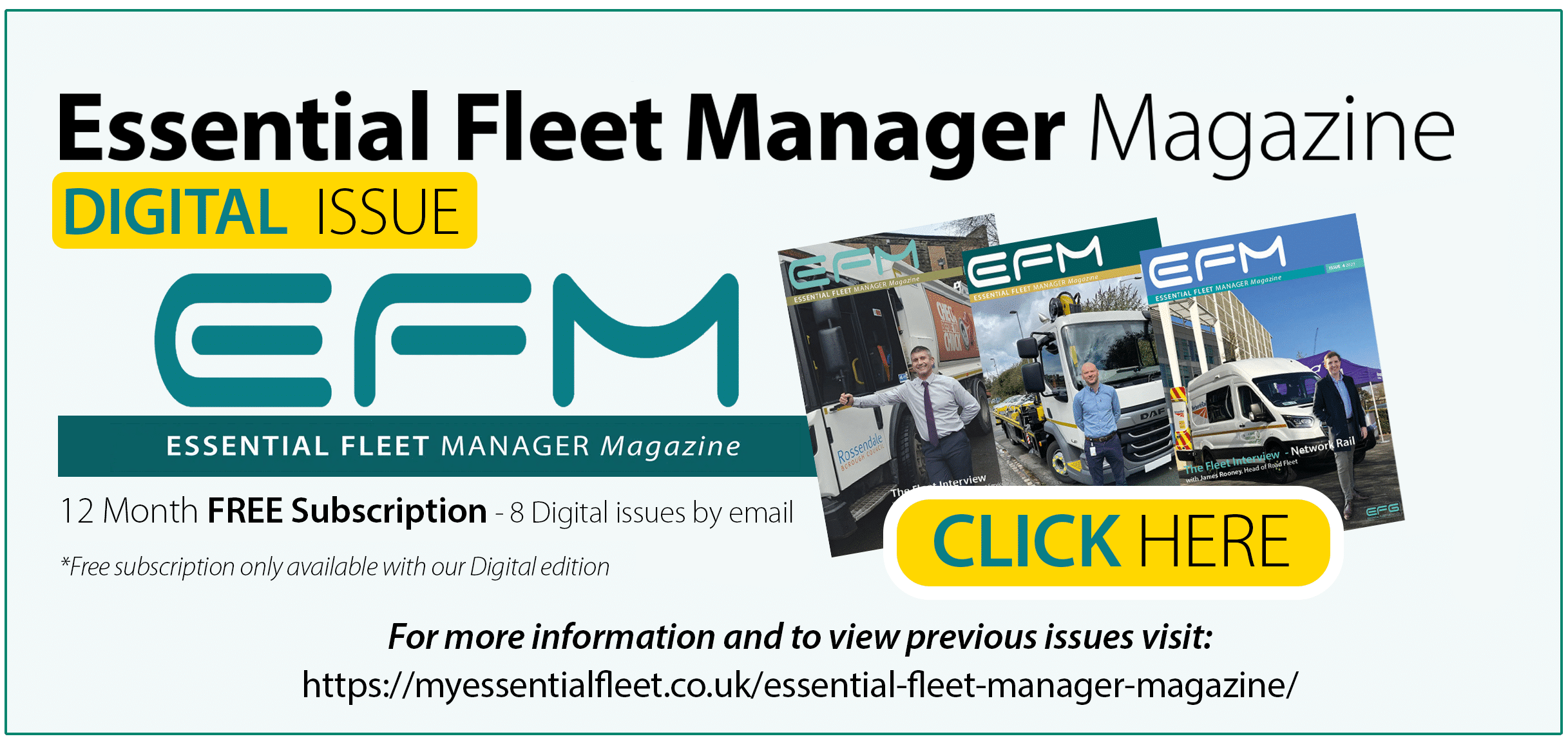All Fleet and Transport professionals must predict and prepare for the challenges that are presented by the winter months. When vehicles are often operating in remote and difficult to access areas along with the need to routinely negotiate steep inclines, there are many extra steps that need to be taken to ensure the safest possible operations, whilst also ensuring the delivery of vital public services.
Rising either side of a seven-mile stretch of the River Irwell in Lancashire is the area served by Rossendale Borough Council. Its population of around 65,000 is distributed amongst various towns, villages and settlements, located at the lowest points at the riverside and rising to elevations of over 160M. Consequently, the demands of operating the vehicle fleet that delivers waste and recycling services in these environments are many, particularly during winter.
A few months on from our full interview with James Gunning, Workshop & Transport Services Manager at Rossendale Borough Council, Essential Fleet Manager was delighted to catch up with James once again, this time to talk about the procedures and operational best practice utilised to ensure delivery of services throughout the rugged terrain of Rossendale, often in the most challenging conditions.
We began by asking James about the various operational challenges presented by Rossendale:
“Rossendale is a mixture of uneven, hilly, and remote terrain and with the towns and villages built into this environment, wherever you are there are many steep inclines. There are difficulties associated with this at all times of year, and in winter these can become significant without the correct preparation and awareness. I’d summarise by mentioning steep inclines, where even heavy rain can cause vehicles to slip and the basic fact that snow and ice are more prevalent in highland environments. Along with this, there are a great many difficult to access areas. In particular, Winter conditions can cut off access to the many farms in the borough, which all need servicing.”
Continuing, we asked how the waste and recycling fleet is set up to deal with difficult winter conditions:
“Winter tyres on all vehicles seems like an obvious step. The issue many fleet professionals will have is that these are a major investment with significant storage demands, but it is more straight forward to make the case for these in Rossendale. This is exactly what I did when I started in 2018 and so far, these have been taken out of storage and fitted to the fleet as early as September and not removed until March. Rossendale is a borough where weather conditions can vary greatly, even on the same day and, we’ve all seen winter end in February, but restart with a vengeance in March. This is why they will be on the vehicles for what seems like a long period, largely to save us trying to predict the unpredictable! We also have a number of farm tracks that can become totally inaccessible to our RCVs. In these situations, we can either deploy cage body 4x4s (Mitsubishi L200s), to pick up bagged refuse or, Transit based vehicles with bin lifts.”
Snow, ice, grit on roads and many other things associated with winter, can have a negative, even damaging, effect on vehicle wear & tear and of course, safety. We asked what steps were taken to ensure that these impacts were addressed and where possible, minimised:
“In this, we’re extremely rigorous. The dirt and soiling that a vehicle can experience during winter can be huge. From a safety point of view, wipers and screen wash are regularly checked and replaced. It sounds fundamental, but when you bear in mind the extra demands placed on these during winter, it may surprise some how often that need will arise. For acute situations when operating, vehicles are equipped with brushes that attach to the water supply. We’re quite lucky in this that Rossendale still has a good number of public toilets that give us this, quite valuable, option. Huge attention is paid to checking tyres and at the end of a round, vehicles will be steam cleaned at the depot. This protects valuable assets from embedded dirt and of course, road grit.”
We finished by asking James what steps the fleet and transport team takes to manage the risk associated with winter operations:
“The first action of the day is for Supervisors to go out and assess the conditions. They will then report back and if a certain round is significantly affected, the vehicle will not go out until it is safe to do so. Communication is key, so if conditions change during the day, we use our WhatsApp group to create awareness. Of course this is not only used to report sudden changes in weather conditions, but also and other incident that can affect operations. Drivers are also given advice sheets on winter driving. It’s all about teamwork, sticking rigorously to processes and communication.”
This article was published in Issue 6 (2023) of Essential Fleet Manager Magazine

The full interview with James was published in Issue 1(2023) of Essential Fleet Manager Magazine





